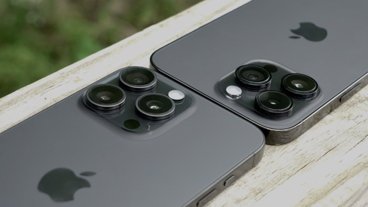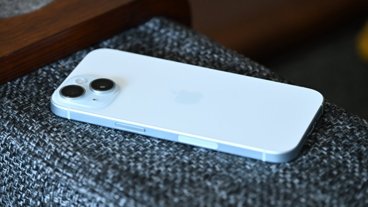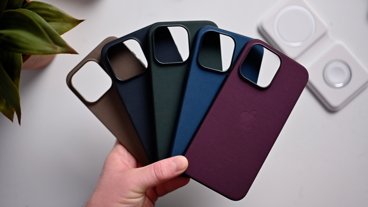Employee-owned iPhone, iPad an 'unstoppable train' in the enterprise
That observation, by RBC Capital Markets analyst Mike Abramsky, was made in response to Gartner's presentation, which estimated that 40 percent of organizations already support employee owned mobile devices.
Gartner called the trend toward "bring your own devices" as an "unstoppable train coming down the tracks," noting that "C-level executives" have opened the door to employee-owned mobile devices and that younger employees "prefer consumer technologies like iPhones and iPads over enterprise-provided alternatives."
On the flip side, organizations are quickly moving to adopt consumer choices as it helps shift Information Technology costs, including hardware, support and service, to users.
iPhone, iPad seeing the most uptake
Gartner reports that Apple's iOS devices are benefiting the most from the trend toward "bring your own devices," pointing out, as Abramsky reports, "Apple's proprietary model is more enterprise-friendly than Android, given its simplicity (two models — iPhone and iPad), security and manageability features, and platform stability, vs. Android's device fragmentation and missing security features."
Sales, marketing, education, healthcare and retail are seeing the most rapid adoption of consumer selected mobile devices, while the presentation noted that high-security environments are not well suited for "bring your own device" policies, and that poor implementations of the practice could be chaotic for IT departments.
Apple enters the enterprise carried by employees
Apple's Steve Jobs observed several years ago that his company was targeting consumers because as a market, they were open to new options, while the enterprise market sat behind a small number of gatekeeper decision makers that made it very difficult to Apple to sell its products.
Apple has increasingly focused its efforts on mobile devices and has worked to make them attractive to enterprise users, particularly since the release of iOS 2.0, which added support for Exchange Server and other popular corporate protocols.
Apple has since worked to make both iOS and Mac OS X Lion attractive to corporate customers, recently adding new profile-based system management to Lion, for example, as well as contracting with Unisys to sell Macs and iOS devices to corporations and government agencies.
On the other hand, Apple has shifted away from efforts to sell Xserve and Xserve RAID hardware, and has turned its Mac OS X Server product from a general purpose, $1000 per copy server OS into a $50 Mac App Store download.
 Daniel Eran Dilger
Daniel Eran Dilger










 Marko Zivkovic
Marko Zivkovic
 Amber Neely
Amber Neely
 Christine McKee
Christine McKee
 Malcolm Owen
Malcolm Owen
 Mike Wuerthele and Malcolm Owen
Mike Wuerthele and Malcolm Owen

 William Gallagher
William Gallagher








